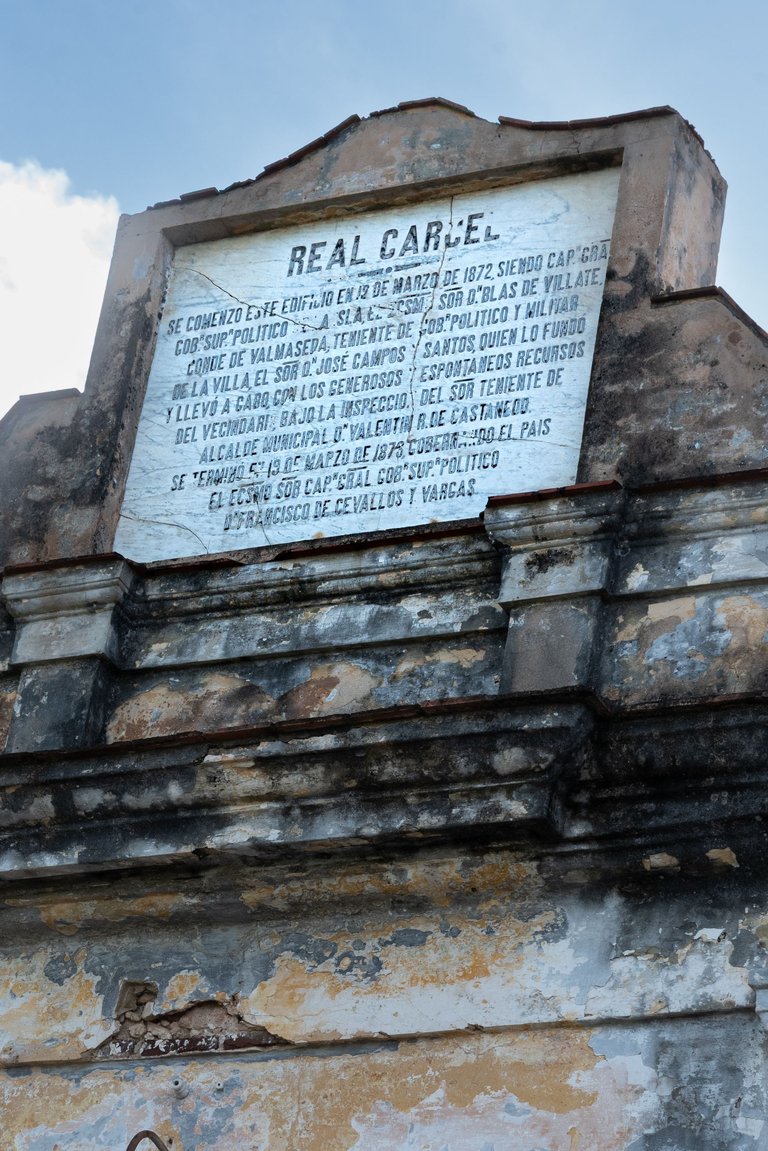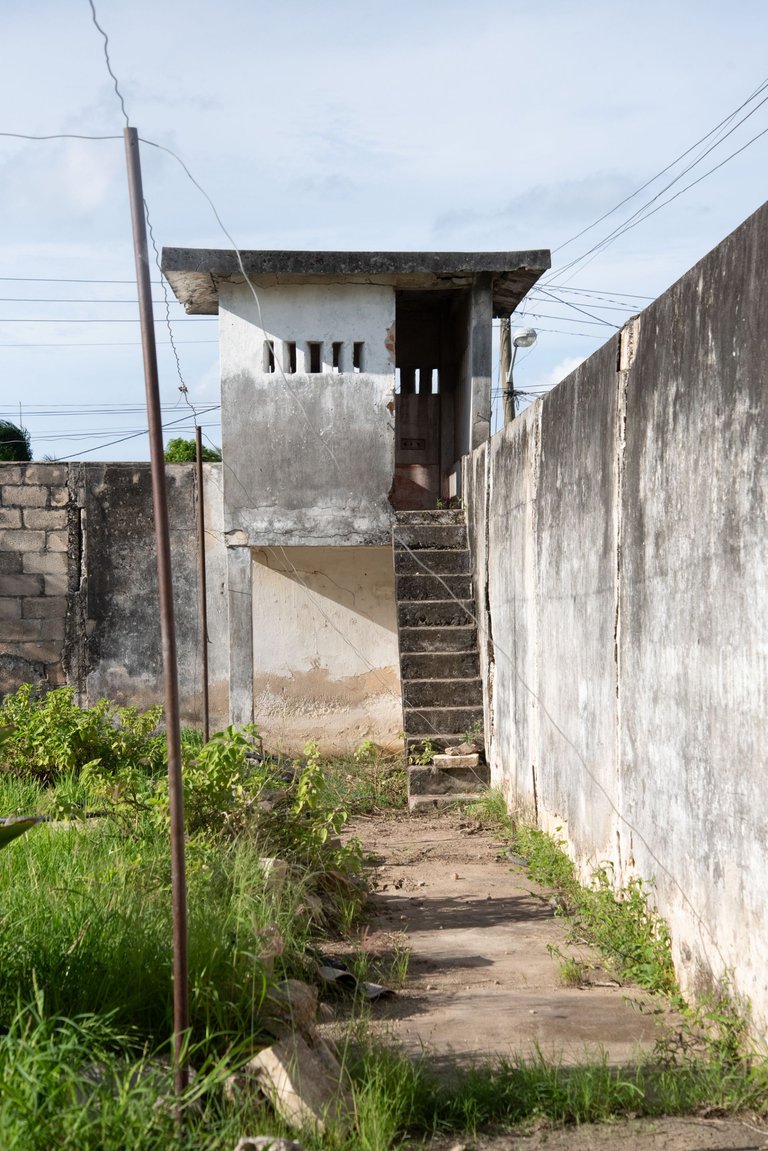Hello everyone.
I’ve been on Hive for quite a while and I had never seen this community before. I’m glad I found it, because its theme is as fascinating as it is unsettling to me.
I’ll begin this post by telling you something that even now I find hard to explain.
The encounter with this place was one of those coincidences that seem to have a will of their own.
A few months ago a friend asked me to accompany her to a place where she had lived and worked for a while. She said she wanted to take some photos. She mentioned it with such naturalness that it raised no suspicions.
She always called it “the workshop,” and in my head I pictured a space full of her tools and materials—the typical artist’s chaos. But while we were on our way she warned me—with a smile I couldn’t quite read—that the place next door would probably be “very interesting” to me.
She knows my weakness for history. And she also knows I rarely resist places that hide troubled pasts.
We took some photos among the remains of her old workshop: peeling walls, the smell of old wood, and something else… something hard to name.
Then she said, “Come, come with me.”
And we walked a few meters.
I don’t know whether it was the silence, or the way the air grew heavier, but when we crossed the entrance I felt a chill run through my whole body.
In front of me stood an old structure, eaten by time, with rusted bars still upright like scars.
And there she introduced it to me: it was nothing less than the old women’s prison of Guanabacoa, founded in the 19th century, in Havana, Cuba.


As if the atmosphere weren’t enough, perched above the main sign—like a guardian or a warning—an aura (Cathartes aura) watched us motionless, with that calm only creatures accustomed to circling death possess.



My friend told me that when she lived nearby she used to do urban exploration around the place. But once—the only time she went alone—she ran out. She said she heard murmurs, like muffled voices, that seemed to come from the cells. Since then, she hadn’t gone back in.
Of course, ever the incurable curious one, I began searching for information.
Nothing.
Almost no records.
And that is the most unsettling thing: my city is full of ruins with histories, but about this place… silence. A silence thicker than the dust that covers everything.
Today, neighbors use the space to plant things or to store old junk. However, between the cracks and the crumbling walls you can still sense that the place is not entirely empty of the past.
Speaking with some locals I learned that in its time women who worked as prostitutes, among others, were locked up there. In tiny cells they would cram more than twenty women. No water, barely any light. Some even gave birth within those walls.





Being there was a strange mix of fascination and sadness. Fascination at touching a part of history that seemed erased, and sadness at imagining so many forgotten women—many innocent—condemned to the same silence that now fills every corner.
While exploring, I dared to enter some of the cells. In one, scratched with something sharp, was a name: Magali. According to my friend, it was the name of one of the inmates. Perhaps a woman who, for some reason, wanted to leave a mark of her passing. On other walls you could make out figures, clumsy strokes… as if someone had tried to draw so as not to lose themselves to the madness of confinement.










~~~ embed:urbanexploration/comments/1obb96a/the_place_no_one_wants_to_enter/ reddit metadata:fHVyYmFuZXhwbG9yYXRpb258aHR0cHM6Ly93d3cucmVkZGl0LmNvbS9yL3VyYmFuZXhwbG9yYXRpb24vY29tbWVudHMvMW9iYjk2YS90aGVfcGxhY2Vfbm9fb25lX3dhbnRzX3RvX2VudGVyL3w= ~~~
This post has been shared on Reddit by @gaboamc2393, @dayadam through the HivePosh initiative.
Magaly! Dónde te me
ajajaj Magali se marchó..y a su barco le llamó....
He disfrutado cada palabra y cada fotografía. Sentí ese escalofrío.
gracias Nanita. en la habana tenemos un montón de cosas derrumbadas ajajjajaj, pero sitios que podrían considerarse asi de históricos y memorables...son menos. Es sumamente llamativo como no hay apenas nada de información escrita o visual de ese lugar.
No tengo idea de dónde podría estar esa info... el museo de Guanabacoa, con el historiador, quizás.
Parece ser una construcción muy añeja que antes de ser cárcel debió tener otros usos... no sé.
Dura, Magali 💪🏾 Un lugar lleno de historia y misterio
😂... Magali, espero que fuera dura de verdad porque aquello da grima
Sin dudas es un lugar al que nadie, sobre todo ninguna mujer querría ir y estar. Imagino que tiene justificación que sintieras eso cuando llegaste a ese lugar. Es aterrador y tiene una mala vibra.
Gracias por compartir estos lugares que de otra manera nunca conocería. Saludos
Congratulations @janetedita! You have completed the following achievement on the Hive blockchain And have been rewarded with New badge(s)
Your next target is to reach 24000 upvotes.
You can view your badges on your board and compare yourself to others in the Ranking
If you no longer want to receive notifications, reply to this comment with the word
STOP